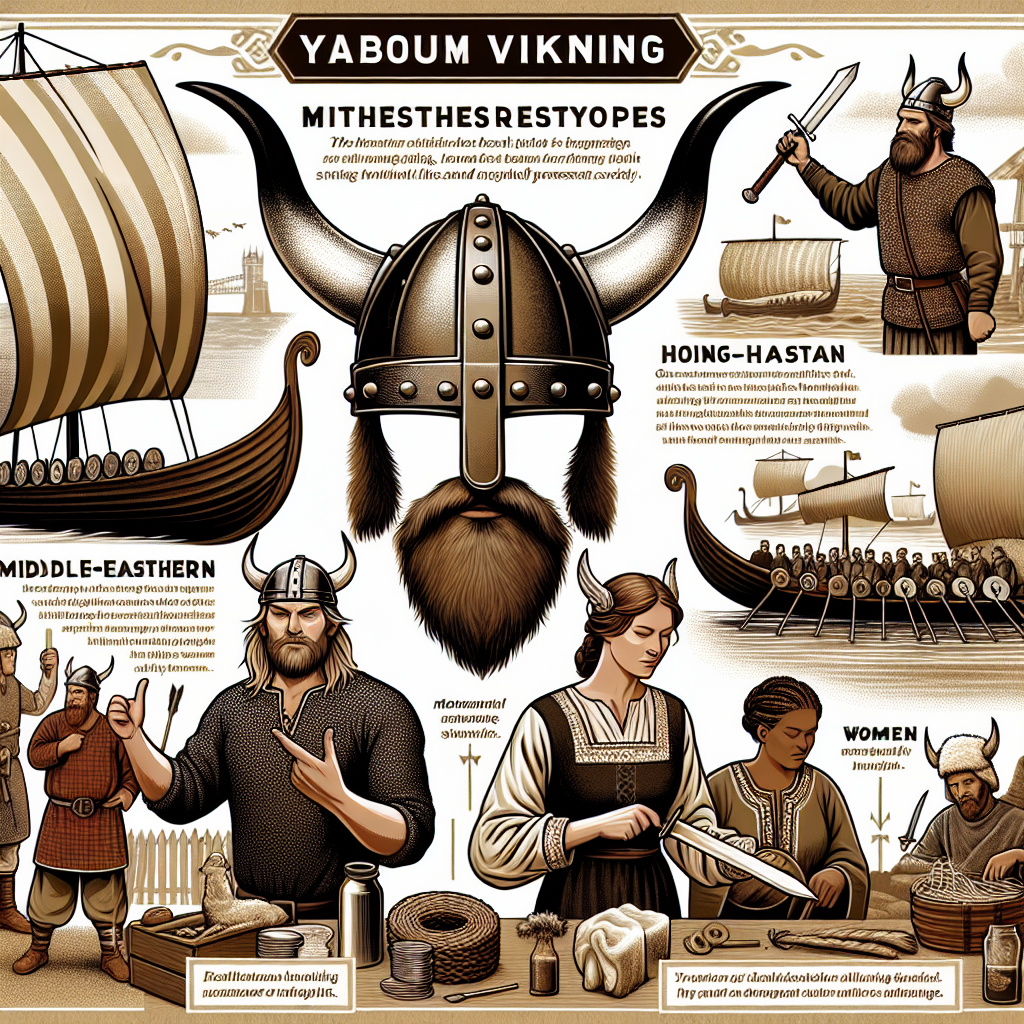Beyond the Horned Helmets: Debunking Myths and Misconceptions about Vikings
Ah, the Vikings! Those fierce, seafaring warriors with rugged beards, excellent storytelling skills, and—horned helmets? While these Norse explorers from the Scandinavian lands have captured our imagination in literature, movies, and even football teams, the Vikings we know today are often a mishmash of myth and reality. Let’s delve into some of the most widespread misconceptions and discover the truth behind the legendary tales.
The Great Helmets Hoax
First things first, let’s talk helmets. The iconic image of Vikings donning horned helmets has been widely debunked. So where did this misconception come from?
- 19th Century Romanticism: The horned helmet idea was popularized in the 1800s during a wave of romantic interest in Norse culture, particularly in artistic depictions, which were more about drama than historical accuracy.
- Wagner’s Operas: The opera costumes from Richard Wagner’s “Der Ring des Nibelungen” famously included horned helmets, forever melding this image with Norse warriors in popular imagination.
In reality, archeological evidence suggests that Vikings wore simple and practical headgear without horns. It seems they knew a thing or two about aerodynamics on the battlefield.
Vikings: Violent Invaders or Smart Traders?
While Vikings are often portrayed as blood-thirsty marauders, the truth is more nuanced. Sure, they knew their way around a battle axe, but they were also exceptional traders and explorers.
- Trade Networks: Vikings established extensive trade networks that spanned from Europe to Asia, bringing with them goods, culture, and new technologies.
- Founders and Settlers: They founded numerous towns and settlements, some of which grew into thriving cities. For instance, Dublin was established by Viking settlers in the 9th century.
The Viking Age was indeed a time of raiding, but it was also an era of significant cultural exchange and economic development. Perhaps calling Vikings “medieval globetrotters” wouldn’t be too much of a stretch!
Cleanliness is Next to Vikingliness
Another widely held myth is that Vikings were a dirty and unhygienic bunch. In reality, they’ve been proven to be quite the opposite.
- Grooming Artifacts: Archeologists have unearthed a variety of grooming tools such as combs, tweezers, and even ear cleaners, suggesting that personal hygiene was taken seriously.
- Bathing Routines: Historical accounts reveal that Vikings bathed regularly (at least once a week), which was quite luxurious by medieval standards.
It’s safe to say that a Viking’s cleanliness rivaled even the most fastidious of modern-day urbanites.
Explorers Before Their Time
Given their extensive travels, the Vikings were quite the explorers. They ventured far beyond their Scandinavian homeland—reaching North America long before Columbus.
- Leif Erikson: Around the year 1000, this intrepid Norse explorer is believed to have landed in the area now known as Newfoundland, Canada, establishing a settlement called Vinland.
- Vast Navigational Skills: Vikings mastered the art of navigation using the stars, landmarks, and even wildlife, outpacing many of their contemporaries in maritime knowledge.
Their explorations didn’t just extend their territories but also their gastronomical horizons—imagine discovering new flavors with every sail!
Unveiling the True Viking Legacy
From their unmatched seafaring capabilities to their sophisticated societal structures, Vikings deserve a reputation that goes beyond helmets and axes. Whether raiding or trading, these Norsemen left an indelible mark on history. For those keen on unearthing more fascinating truths about history and much more, exploring the Top Education Telegram Channels can be an enriching journey.
The sagas of the Vikings are not just tales of war and conquest but narratives of exploration, innovation, and cultural amalgamation. Now, isn’t that a saga worth telling over your next cozy campfire?
